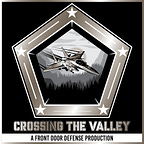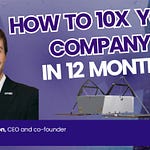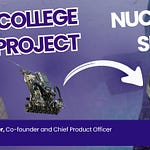LeoLabs is Building the "Living Map" of Space Activity
About Tony Frazier
Tony Frazier joined LeoLabs as CEO after a distinguished career scaling technology companies in complex government markets. At Maxar Technologies, he served as Executive Vice President and General Manager of Earth Intelligence, overseeing partnerships with over 60 allies worldwide and supporting critical missions from humanitarian assistance to the Ukraine conflict. His earlier experience includes leadership roles at Cisco Systems and Infor, plus startup experience during the late 90s internet boom. Tony's unique combination of product expertise, P&L management, and deep government market knowledge made him the ideal leader to scale LeoLabs from innovative technology to mission-critical infrastructure.
About LeoLabs
Founded in 2016, LeoLabs commercialized radar technology from Stanford Research Institute to create the world's most comprehensive space domain awareness platform. The company operates a globally distributed network of 11 radars across 7 countries, tracking over 24,000 space objects daily and providing persistent monitoring services to government and commercial customers. LeoLabs has raised over $140 million through Series B funding and serves a diversified customer base spanning US government (33% of revenue), international governments (60%), and commercial space operators (7%). With recent wins including a $60 million STRATFI award and $4 million TACFI award, the company is positioned to scale its next-generation "seeker" class radar technology as space activity explodes toward 100,000+ trackable objects in the coming decade.
Key Takeaways
1. Turn Technical Accidents Into Market Opportunities
LeoLabs originated when Stanford researchers studying northern lights discovered their radar was "accidentally" tracking satellites. It’s a great example of how investigating unexpected results / data can reveal entirely new opportunities. When teams encounter consistent "noise" or anomalies in their research, dig deeper rather than filtering it out – you might be seeing the early signals of a billion-dollar problem.
2. Geographic Distribution Created Defensible Competitive Advantages
Objects in low Earth orbit travel at 17,000 mph and can move unpredictably. LeoLabs' network of radars across seven countries provides persistent coverage that no single-location competitor can match. For defense tech companies, consider whether your solution's effectiveness depends on geographic diversity, multiple observation points, or distributed sensing capabilities – these can become your strongest competitive moats.
3. LeoLabs Bridged Funding Gaps with International Customers
Despite Space Policy Directive 3 calling for commercial space safety capabilities in 2018, actual Department of Commerce funding didn't arrive until 2022. LeoLabs survived this four-year gap by building strong international government relationships, which now represent 60% of their revenue. We’re increasingly seeing defense tech companies actively cultivating allied nations as customers — they often have faster procurement cycles and urgent capability gaps that can be met while US programs take longer to materialize.
4. Demonstrate Operational Relevance With Real-World Threat Tracking
Rather than generic technology demonstrations, LeoLabs proved their value by tracking actual threats like Russia's potentially nuclear-capable Cosmos 2553 satellite and China's "dogfighting" satellites performing rendezvous operations. They even cued Maxar to photograph tumbling objects, providing visual confirmation of their radar detections. This represents an important shift, from "here's what our technology can do" to "here's how we're solving your current operational problem."
5. Leverage Co-Investment Models To Accelerate Scale and Prove Commitment
LeoLabs' recent STRATFI and TACFI awards require 50-50 cost sharing between government funding and private investment. This structure accelerates capability development while demonstrating commercial commitment to the mission. These programs - as previously discussed on CTV - offer opportunities to scale faster than traditional contracts while proving long-term sustainability to government customers.
For more about LeoLabs: https://leolabs.space/
For more Crossing the Valley: www.valleycrossers.com











